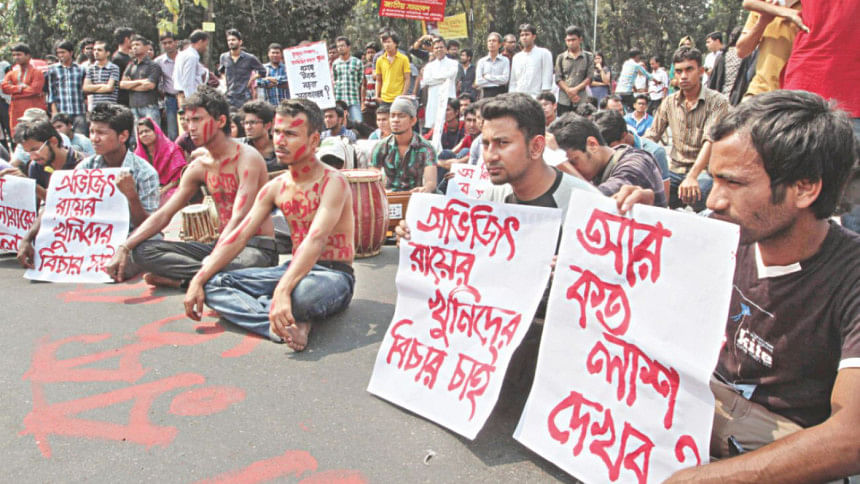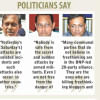When will it all end?

ANY direction you cast your gaze you encounter violence in myriad forms; situated in racial, religious, ethnic, or class conflict zones. Intolerance is perhaps the underlying motivation of our times. Indeed, to echo Achebe's novel, things are falling apart. Even though we have all kinds of experts, these days. Just turn on the TV. There's your terrorism expert. And violence expert. And gender expert. Perhaps we need to get rid of that word from the dictionary. What is an expert, who is an expert, anyway? One who knows everything about something, anything? And when does that happen? At what point in their lives do they achieve that god-like power? There is no end to learning. Not even after a zillion degrees and whatever-have-you. We have to be learners for life. You are nothing if you're not curious. You're dead when you stop thinking. Not when you physically die.
A while back I wrote about the bomb hurler, when the first bus was blown up this season. Unfortunately I (and probably many others in Bangladesh) was right: many, many more buses were burnt in the months following that article. Many, many people died in explosions around the country. A huge amount of public and private property was destroyed. All in the name of protests. Using violence to protest defeats the idea of protest; it degenerates into anarchy. We hear that all these protests are in the interest of the people, by representatives of the people. Only that all of this is happening at the expense of the people. Most affected are the ones who have become a number in the census of this country, a nameless, faceless 'jonota' who have nowhere to run, and nowhere to hide. It is them whose families are destroyed in a moment's blur. A hand shapes an arc in the air, a projectile neatly lands with practiced motions, blast, smoke fire, and then annihilation. Finally, the number is erased from memory; it will balance out in the number of births and deaths in the next census. Next please.
And then, one Avijit Roy is murdered, hacked to death in full public view, the circle of violence complete. Perhaps this marked the finale of this season. And some perhaps thought that the good people of Bangladesh would rise against this very obvious attack on intellectual freedom, this attack on free speech, and free thought. But, no, someone came, read the script, and underlined the word violence, and wrote 'stet.' Let it stand. Let it continue. That was expecting too much, perhaps.
Being away from Bangladesh has its advantages. One can be nostalgically delusional. At least for a short period of time. One can pretend that the country they left retained the innocence that it had when they had left for foreign shores. Maybe that's what Avijit Roy thought, too? But Bangladesh is no longer a new nation. The freshly minted hope of post '71 euphoria has died, not a quiet death, but a violent one. We have again and again hacked, just like Avijit was, at the idea of the nation we had birthed. Now, the nation lies sprawled, bleeding, whimpering, in full public view. We are all watching, we are bystanders. No one is moving. No one is stepping forward to take the broken nation—its harsh, shallow breath grating against their ears—to lift it up, cure, tend, and resurrect it back to its full glory. Our narrow agendas are too narrow for empathy. All we have are fierce words, hate speeches, threats, and violence, violence, violence.
The wrong kinds of powers are in the wrong hands. Opposing voices are being silenced, not engaged with. No one cares for a debate or a discussion (unless it's on TV). So we have found a better way to deal with it. Silencing the voice. Take the head out and the headache will disappear kind of remedy.
What is most disturbing is that people have been taught to stop thinking, and in doing so they have relinquished their power of thought to others, who now think for them. I don't know if this is inevitable. I don't know if people are meant to regress into sheep led by a pack of wolves. Evolutionarily that seems improbable. Humans are supposed to be able to fight for survival. Then why are we only at the receiving end of violence?
Because we are constantly at war. "There is a war between the rich and poor/a war between the man and the woman/There is a war between the left and right/a war between the black and white/a war between the odd and the even//Why don't you come on back to the war, pick up your tiny burden/why don't you come on back to the war, let's all get even/why don't you come on back to the war, can't you hear me speaking?" - Leonard Cohen.
These wars must come to an end. But when? That's anyone's guess.
The writer is Assistant Professor at the School of Social Work, University at Buffalo.

 For all latest news, follow The Daily Star's Google News channel.
For all latest news, follow The Daily Star's Google News channel. 








Comments